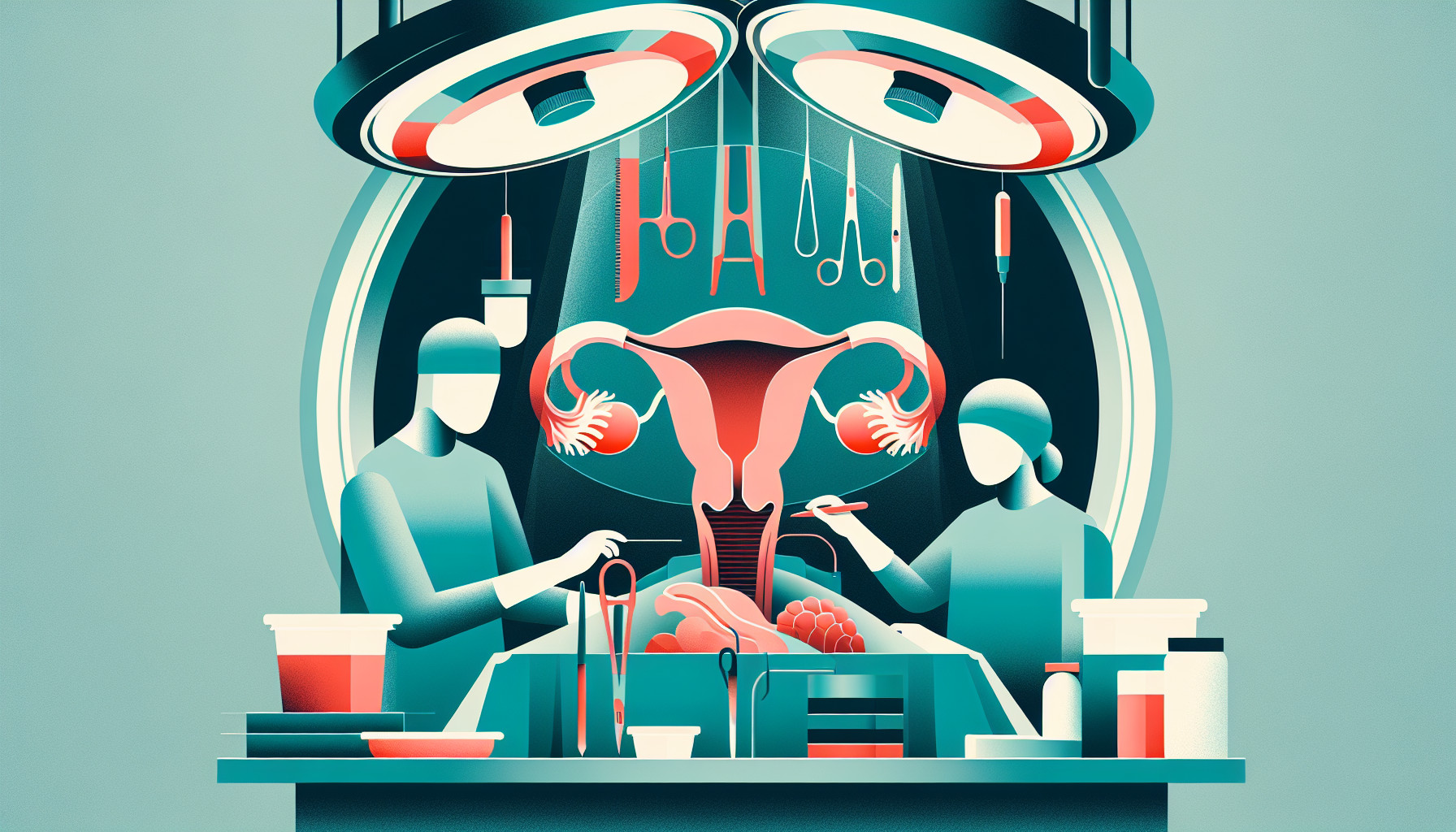Our Summary
This research paper examines the effects of surgical menopause on body weight and body composition. Surgical menopause occurs when a woman has her ovaries removed, which is often done to reduce the risk of ovarian cancer. The study looked at women who were about to undergo this type of surgery and compared them to a group of women who kept their ovaries.
The researchers tracked the women’s weight and body composition (the amounts of fat, muscle and other tissue in the body) for two years after the surgery. They found that both groups of women gained weight over this time period, but there was no significant difference in the amount of weight gained between the two groups.
However, the women who underwent surgical menopause may have gained a bit more belly fat than the other women. There were no other differences in body composition between the two groups.
The study also looked at whether hormone replacement therapy (HRT), which is often used to manage menopause symptoms, had any effect on weight or body composition. They found that it did not make a difference.
In conclusion, the study found that surgical menopause did not significantly affect a woman’s weight or overall body composition over a two-year period, aside from a possible slight increase in abdominal fat. Hormone replacement therapy did not change these results.
FAQs
- What is surgical menopause and why is it performed?
- Does surgical menopause affect a woman’s body weight or composition significantly?
- Does hormone replacement therapy have any impact on weight or body composition after surgical menopause?
Doctor’s Tip
A helpful tip a doctor might tell a patient about salpingo-oophorectomy is to maintain a healthy diet and exercise routine to help manage any potential changes in weight or body composition after the surgery. Additionally, discussing any concerns about menopausal symptoms with your healthcare provider can help determine the best course of treatment for you.
Suitable For
Patients who are recommended salpingo-oophorectomy are typically those who are at high risk for ovarian cancer, such as those with a family history of the disease or those with BRCA gene mutations. It is also recommended for patients with certain gynecologic conditions, such as endometriosis or ovarian cysts, that are not responding to other treatments. Additionally, salpingo-oophorectomy may be recommended for patients undergoing a hysterectomy for other reasons, such as uterine fibroids or abnormal uterine bleeding.
Timeline
Before the salpingo-oophorectomy, the patient will likely have discussions with their healthcare provider about the risks and benefits of the surgery. They may also undergo tests to confirm the need for the procedure and to assess their overall health.
During the surgery, the patient will be under general anesthesia and the surgeon will remove one or both ovaries and fallopian tubes. The procedure can be done either through traditional open surgery or minimally invasive techniques such as laparoscopy.
After the surgery, the patient will likely stay in the hospital for a day or two for monitoring and recovery. They may experience some pain, swelling, and discomfort in the surgical area, which can be managed with pain medication. The patient will also be advised on how to care for the incision site and when they can return to normal activities.
In the weeks and months following the surgery, the patient may experience symptoms of surgical menopause, such as hot flashes, night sweats, mood changes, and vaginal dryness. Hormone replacement therapy may be recommended to help manage these symptoms.
Over time, the patient may notice changes in their body weight and composition. The study mentioned above found that women who underwent surgical menopause did not experience significant differences in weight or body composition compared to women who kept their ovaries. However, there may be a slight increase in abdominal fat for women who had their ovaries removed. Regular follow-up appointments with the healthcare provider will be important to monitor any changes in weight and overall health.
What to Ask Your Doctor
- What is the reason for recommending a salpingo-oophorectomy in my case?
- What are the potential risks and complications associated with this surgery?
- How will the removal of my ovaries affect my hormone levels and menopausal symptoms?
- What are the potential long-term effects of surgical menopause on my health?
- Will I need hormone replacement therapy after the surgery, and if so, what are the potential benefits and risks?
- How will the surgery impact my weight and body composition?
- Are there any lifestyle changes or interventions I should consider to mitigate any potential changes in weight or body composition?
- How often will I need to follow up with you after the surgery to monitor my health and any potential changes in weight or body composition?
Reference
Authors: Price SAL, Finch S, Krejany E, Jiang H, Kale A, Domchek S, Wrede D, Wark JD, Hickey M. Journal: J Clin Endocrinol Metab. 2023 Dec 21;109(1):e397-e405. doi: 10.1210/clinem/dgad385. PMID: 37410931
